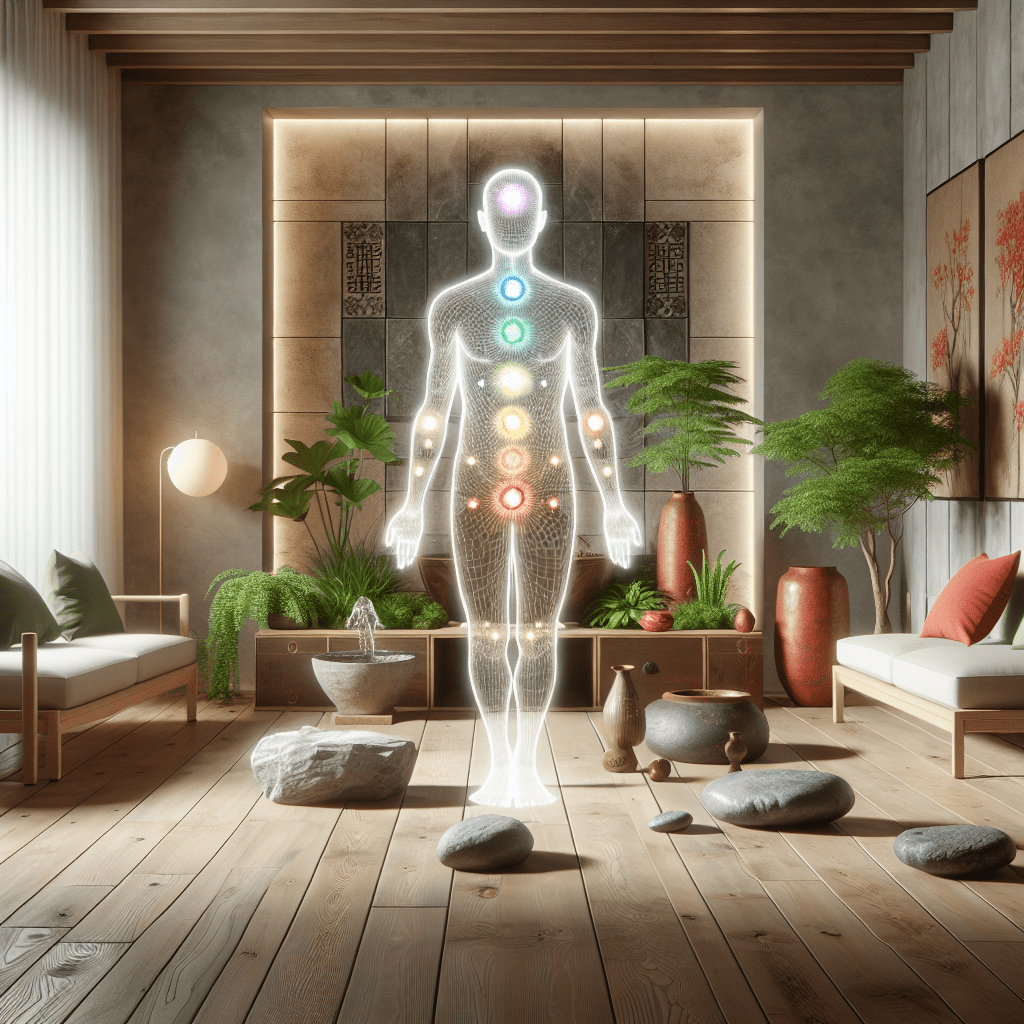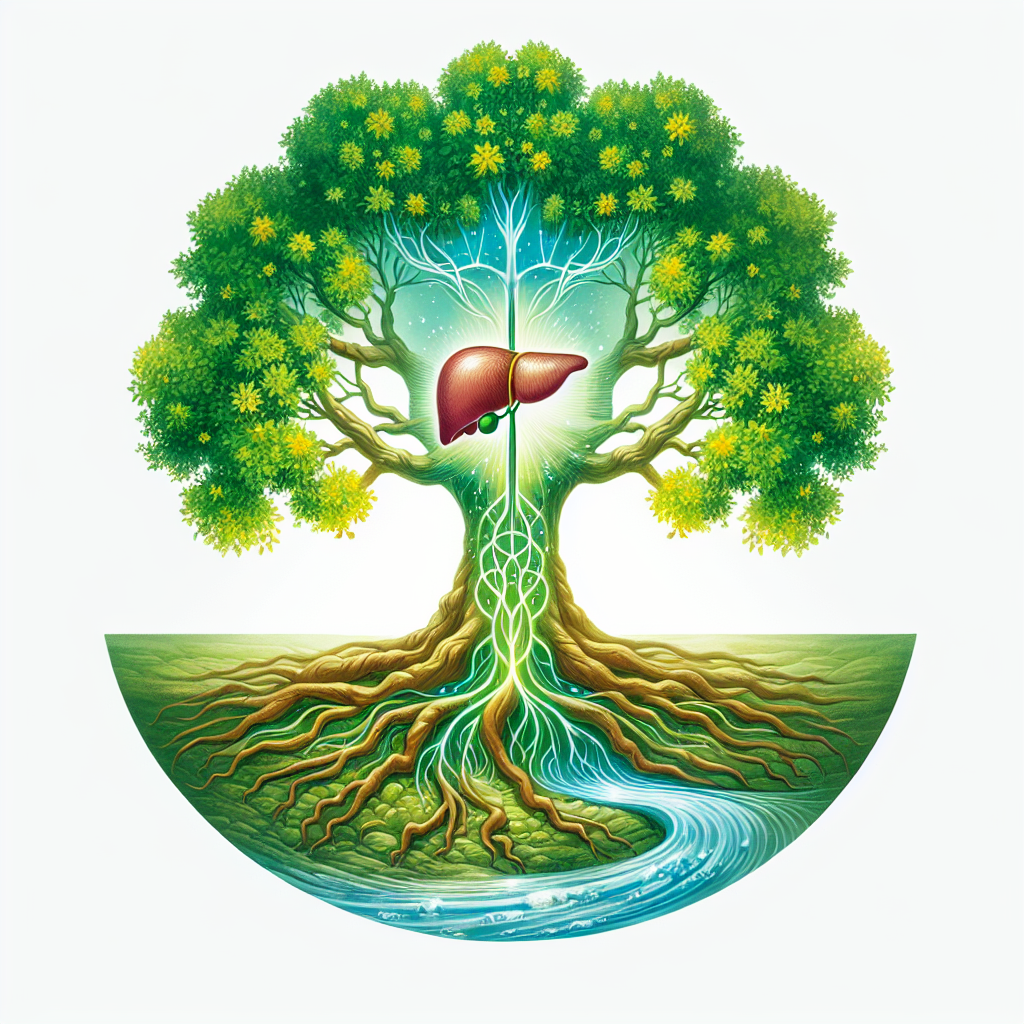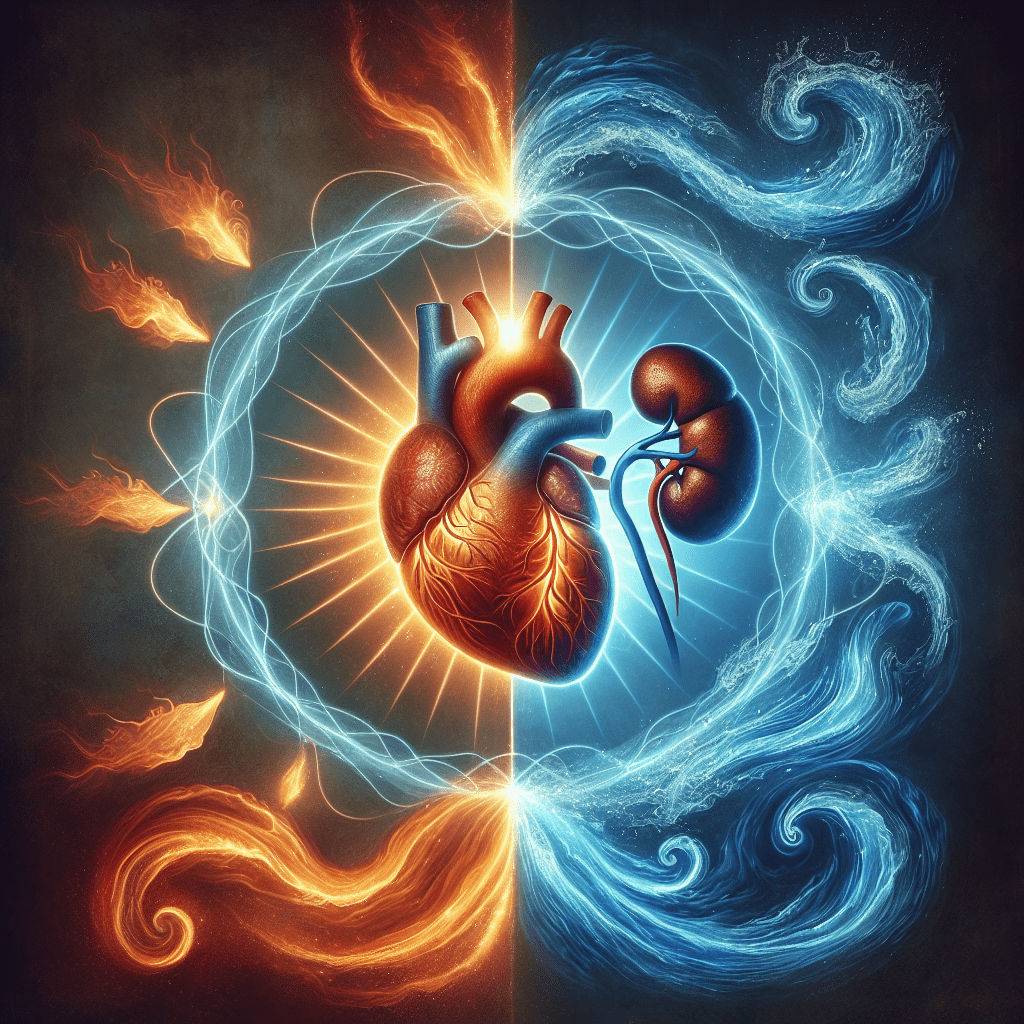Ever felt like something’s just “off” with your health, but you can’t quite put your finger on it? Like when your favorite song hits a wrong note, our bodies can sometimes fall out of harmony. In traditional Chinese medicine (TCM), this musical analogy isn’t just clever wordplay—it’s the essence of the Five Element Organ Theory, a 2,000-year-old framework that views our bodies as complex symphonies of interconnected systems.
Much like how Feng Shui balances environmental energies to create harmony in your living space, the Five Element Organ Theory helps us understand how to balance our internal energies for optimal health. This ancient wisdom doesn’t just look at individual organs working in isolation—it sees them as part of a beautiful, intricate dance, each influencing and supporting the others in a continuous cycle.
The Five Element Organ Theory isn’t just another health concept—it’s a comprehensive blueprint for understanding how your body works on physical, emotional, and energetic levels. By mapping the relationships between Wood, Fire, Earth, Metal, and Water elements and their corresponding organs, this theory offers insights into why certain health issues might be connected in ways modern medicine sometimes overlooks.
The Five Elements: Your Body’s Building Blocks
Ancient wisdom meets modern wellness in this exploration of how your organs work together as a harmonious whole.
Let’s explore each of the five elements and discover what they can tell us about our health and wellbeing:
Wood: The Element of Growth and Flexibility
Associated organs: Liver and Gallbladder
Season: Spring
Emotion: Anger
The Wood element embodies the energy of growth, expansion, and new beginnings—just like trees reaching toward the sky. The Five Elements Theory identifies this as the foundation for springtime energy. Your liver, the largest internal organ, acts as your body’s chemical processing plant, detoxifying your blood and producing bile necessary for digestion.
When Wood energy is balanced, you’ll experience clear vision (both literally and in terms of planning), decisive action, and healthy assertiveness. You’ll feel creative, motivated, and able to navigate life’s challenges with flexibility.
Signs of Wood imbalance might include:
- Frequent irritability or anger outbursts
- Headaches, especially behind the eyes
- Tight muscles, particularly in the neck and shoulders
- Digestive issues like acid reflux
- Menstrual irregularities
To nurture your Wood element, try gentle stretching exercises, spending time in nature, and incorporating leafy greens into your diet.
Fire: The Element of Joy and Connection
Associated organs: Heart and Small Intestine
Season: Summer
Emotion: Joy
Fire represents warmth, passion, and connection. Your heart doesn’t just pump blood—in Five Element Theory, it houses your “Shen” or spirit, governing your consciousness, mental activity, and ability to form meaningful relationships.
When Fire energy is balanced, you’ll experience joy, appropriate enthusiasm, clear thinking, and healthy relationships. You’ll feel naturally charismatic, warm, and able to both give and receive love freely.
Signs of Fire imbalance might include:
- Anxiety or restlessness
- Insomnia or disturbed sleep
- Heart palpitations
- Excessive talking or laughing
- Difficulty connecting with others emotionally
To nurture your Fire element, cultivate healthy relationships, practice mindfulness, and include bitter foods like arugula or dandelion greens in your meals. Food as medicine principles are especially effective for balancing this element.
Earth: The Element of Nourishment and Stability
Associated organs: Spleen and Stomach
Season: Late Summer
Emotion: Worry
Earth represents grounding, nourishment, and stability—like the soil that supports all life. Your spleen and stomach form the center of your digestive system, transforming food into energy and distributing it throughout your body.
When Earth energy is balanced, you’ll experience proper digestion, stable energy levels, and a grounded approach to life’s challenges. You’ll feel naturally nurturing, supportive, and able to care for yourself and others without becoming depleted.
Signs of Earth imbalance might include:
- Digestive issues like bloating or loose stools
- Excessive worrying or overthinking
- Fatigue, especially after eating
- Cravings for sweet foods
- Tendency to nurture others at your own expense
To nurture your Earth element, establish regular eating patterns, practice self-care, and incorporate warming foods like sweet potatoes and ginger into your diet.
Metal: The Element of Refinement and Letting Go
Associated organs: Lungs and Large Intestine
Season: Fall
Emotion: Grief
Metal represents precision, boundaries, and the ability to take in what’s valuable and release what’s not—just like precious metals that must be refined. Your lungs bring in oxygen and your large intestine eliminates waste, both embodying this principle of discrimination.
When Metal energy is balanced, you’ll experience clear boundaries, healthy detachment, and appreciation for quality. You’ll feel naturally organized, precise, and able to let go of what no longer serves you.
Signs of Metal imbalance might include:
- Respiratory issues like asthma or frequent colds
- Constipation or irregular bowel movements
- Difficulty letting go of past hurts
- Perfectionism or rigidity
- Skin problems
To nurture your Metal element, practice deep breathing exercises, maintain healthy bowel habits, and include white foods like cauliflower and pears in your diet.
Water: The Element of Wisdom and Flow
Associated organs: Kidneys and Bladder
Season: Winter
Emotion: Fear
Water represents depth, wisdom, and the ability to flow around obstacles. Your kidneys store your body’s most essential energy (called “Jing” in TCM) and filter your blood, while your bladder eliminates liquid waste.
When Water energy is balanced, you’ll experience wisdom, willpower, and healthy reserves of energy. You’ll feel naturally intuitive, resourceful, and able to navigate life’s challenges with grace.
Signs of Water imbalance might include:
- Lower back pain or knee problems
- Urinary issues or frequent infections
- Excessive fear or anxiety
- Exhaustion or burnout
- Reproductive challenges
To nurture your Water element, prioritize rest, practice gentle movement like tai chi or swimming, and include foods like black beans and blueberries in your diet.
Understanding the Cycles: How Elements Work Together
The true magic of the Five Element Theory lies not just in understanding each element, but in recognizing how they influence and transform each other in continuous cycles.
The genius of the Five Element Organ Theory lies in its understanding of relationships. Unlike viewing organs as isolated systems, this framework recognizes two main cycles that govern how elements interact:
The Creation (Generating) Cycle
Think of this as a nurturing relationship, where each element “gives birth” to the next:
- Wood feeds Fire (trees burn to create flame)
- Fire creates Earth (ash becomes soil)
- Earth produces Metal (minerals form within the earth)
- Metal collects Water (metal containers hold water, water condenses on metal surfaces)
- Water nourishes Wood (plants need water to grow)
When this cycle flows smoothly, each element receives the support it needs. For example, if your Kidney (Water) energy is strong, it will naturally support your Liver (Wood) functions.
The Control (Restraining) Cycle
This cycle ensures no single element becomes too dominant:
- Wood controls Earth (tree roots prevent soil erosion)
- Earth controls Water (soil banks contain water)
- Water extinguishes Fire
- Fire melts Metal
- Metal cuts Wood
These relationships explain why an imbalance in one organ can create a cascade effect throughout your body. This interconnected nature of health is central to Traditional Chinese Medicine’s approach to wellness. For instance, excessive anger (Wood imbalance) might damage your Heart (Fire) over time, while nurturing your Kidneys (Water) could help keep your Liver (Wood) functioning optimally.
Diagnostic and Therapeutic Approaches: Restoring Your Inner Harmony
Traditional practitioners have developed sophisticated methods to identify and correct elemental imbalances, restoring your body’s natural harmony.
Traditional Chinese medicine practitioners use the Five Element Organ Theory as a diagnostic framework, observing your voice, face color, emotional tendencies, and physical symptoms to identify which elements might be out of balance.
Acupuncture: Redirecting Energy Flow
Acupuncture uses thin needles to stimulate specific points along energy channels associated with each element. For example:
- If you’re experiencing frequent headaches and irritability (Wood imbalance), your practitioner might focus on Liver meridian points.
- For someone with anxiety and insomnia (Fire imbalance), Heart meridian points would be emphasized.
- A person with digestive issues and worry (Earth imbalance) might receive treatment on Spleen and Stomach points.
Herbal Remedies: Nature’s Balancing Agents
Traditional herbal formulas are designed to restore balance to specific elements:
- For Wood imbalance: Herbs like milk thistle support liver function and soothe irritability.
- For Fire imbalance: Cooling herbs like chrysanthemum calm the heart and mind.
- For Earth imbalance: Digestive herbs like ginger and licorice strengthen the spleen and stomach.
- For Metal imbalance: Lung-supporting herbs like astragalus boost respiratory health.
- For Water imbalance: Kidney-nourishing herbs like goji berries replenish vital energy.
Seasonal Lifestyle Adjustments
The Five Element Organ Theory suggests aligning your activities with nature’s rhythms:
- Spring (Wood): Focus on new beginnings, cleansing, and increased movement.
- Summer (Fire): Embrace social connections, joy, and cooling foods.
- Late Summer (Earth): Emphasize nourishment, grounding routines, and digestive health.
- Fall (Metal): Practice letting go, refining priorities, and supporting respiratory health.
- Winter (Water): Prioritize rest, reflection, and conserving energy.
Imagine Sarah, who visits her TCM practitioner complaining of digestive issues, fatigue, and a tendency to worry excessively about her family. This is a classic presentation that skilled practitioners recognize through Five Element diagnostic methods. The practitioner observes her yellowish complexion, sweet food cravings, and nurturing personality—all signs pointing to an Earth element imbalance. Her treatment plan might include acupuncture points to strengthen the Spleen, herbs like astragalus and ginger, dietary changes to reduce dampness-forming foods, and mindfulness practices to reduce overthinking.
Aligning Body, Mind, and Spirit: The HerbalsZen Approach
Discover how the Five Element Theory can transform your approach to health by helping you understand the deep connections between your body, emotions, and the natural world.
At the heart of the Five Element Organ Theory is a profound truth that resonates with HerbalsZen’s philosophy: true wellness requires harmony between physical, emotional, and spiritual aspects of our being. This holistic approach recognizes that our organs aren’t just physical structures—they’re energetic centers that influence our emotions, thoughts, and spiritual well-being.
Mindfulness Practices for Elemental Balance
Consider incorporating these element-specific mindfulness practices into your routine:
- Wood meditation: Visualize yourself as a tree, roots firmly grounded, branches flexible yet strong.
- Fire contemplation: Sit with a candle flame, focusing on the warmth and light in your heart.
- Earth grounding: Walk barefoot on natural ground, feeling supported and nourished by the earth beneath you.
- Metal breathing: Practice letting go with each exhale, releasing what no longer serves you.
- Water flow: Imagine yourself as water, able to adapt and flow around any obstacle with wisdom.
Nutritional Wisdom Through the Five Elements
Eastern medicine has long understood that food is medicine—a principle that EASTCHI AI embraces by providing personalized nutritional recommendations based on your constitutional type and elemental needs. Consider these dietary approaches:
- Wood-supporting foods: Sour flavors like lemon, green vegetables, and sprouted grains support liver function.
- Fire-balancing foods: Bitter foods like dandelion greens, tomatoes, and modest amounts of spicy foods regulate heart energy.
- Earth-strengthening foods: Sweet vegetables like carrots, moderate amounts of whole grains, and warming spices nourish the spleen.
- Metal-enhancing foods: Pungent flavors like onions and garlic, white foods like cauliflower, and pears support lung health.
- Water-replenishing foods: Salty flavors in moderation, black foods like black beans, and sea vegetables nourish kidney energy.
Embracing Your Personal Harmony: Next Steps
The Five Element Organ Theory offers a profound framework for understanding your body’s interconnected systems and finding your way back to balance. As you reflect on what you’ve learned, consider these steps to begin integrating this wisdom into your daily life:
Observe your patterns: Which elemental imbalances resonate with your experience? Do you notice tendencies toward certain emotions or physical symptoms?
Start small: Choose one element to focus on strengthening through diet, movement, or mindfulness practices.
Honor the seasons: Align your activities and diet with the natural rhythms of the year to support your body’s changing needs.
Seek guidance: Consider consulting with a TCM practitioner who can provide personalized insights based on your constitution.
Embrace the interconnections: Remember that nurturing one element naturally supports others through the creation cycle.
The beauty of the Five Element Organ Theory lies in its recognition that we are part of nature, subject to the same patterns and cycles that govern all living things. For a deeper scientific perspective, modern research is beginning to validate these ancient connections. By tuning into these natural rhythms and addressing imbalances with wisdom drawn from thousands of years of Eastern medical knowledge, we can find our way back to the harmonious state our bodies naturally seek.
Like a well-conducted orchestra, when all five elements work in harmony, the result is nothing short of beautiful—a life of vitality, emotional balance, and spiritual well-being. Isn’t it time you discovered your body’s natural blueprint for balance?



